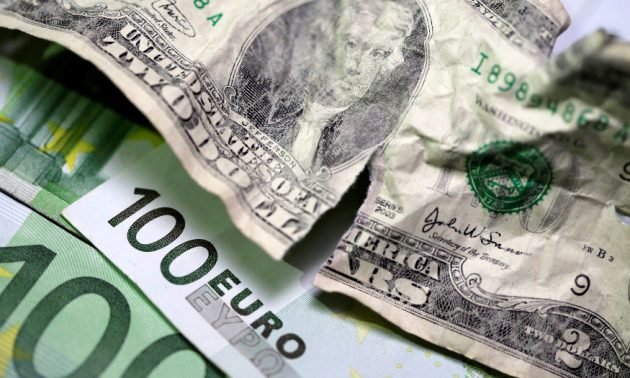India mulls dumping dollar in oil trade with Iran, Russia, Venezuela

TEHRAN - The Reserve Bank of India and Ministry of Finance have been tasked with exploring the viability of rupee and barter-based trade agreements with crude oil producing nations such as Russia, Iran and Venezuela, a report in Economic Times said, citing a government official familiar with the situation.
Citing one example, the official stated that the oil ministry was asked to explore the option of trading Indian pharmaceuticals for Venezuelan oil.
The move is likely to raise eyebrows in Washington as the U.S. government does not share good relations with these countries. It will be seen as a rebuff, believe experts, since the U.S. had been recently warming up to New Delhi, after feeling increasingly isolated in the region.
In its meeting on Thursday, the Indian inter-ministerial panel headed by Commerce and Industry Minister Suresh Prabhu asked the Reserve Bank of India to explore the possibility of rupee-yuan trade with China, trade deals using the euro instead of the dollar, and the promotion of gold-related initiatives, such as gold-denominated savings accounts and sovereign bonds, and measures to cut gold imports, said the ET report.
The panel also proposed the need for barter and deferred payment arrangements with Russia in the trade of raw diamonds.
The meeting came amid a sharp decline in the value of rupee against the dollar this week, with the Indian currency settling at a record low of 73.81 rupees against the dollar. The weakening currency combined with rising crude oil prices have served to widen New Delhi's trade and current account deficits. The report stated.
India is the world’s third largest importer of crude oil, with over 60 percent of its imports coming from the Middle East, especially Iran. The country’s oil imports rose by 53.55 percent to $58.81 billion in the first five months of 2018 and the oil imports from Iran have also seen surge, despite the sanctions.
Speaking at a Russia-India summit in New Delhi on Friday, President Putin said that Moscow was ready to work with India on a series of energy projects, including Far East LNG and Arctic LNG 2, as well as projects to develop oil and gas fields in Siberia, Yamal and the Russian continental shelf.
The two countries also signed an important $3.8 billion deal that allows India to acquire S-400 air defense missile system, despite fears of U.S. sanctions. The S-400 is one of the most sophisticated surface-to-air defense systems in the world with a range of 400 km.
Speaking at the Russian Energy Week forum in Moscow last week, President Putin said Russia's efforts to reduce dependence on dollar in trade, characterizing US sanctions policy as a "colossal strategic mistake" which has served to “undermine confidence in the dollar as a universal…reserve currency today.”
Last month, the chairman of Russia's second-largest bank proposed a multi-step 'de-dollarization' plan for the Russian economy, which is likely to be presented to Prime Minister Dmitry Medvedev for for views this month.
Russia is one of many countries looking to reduce their dependence on the dollar amid increasingly harsh U.S. tariff and sanctions policy. Iran is also making efforts to make dollar irrelevant for its trade through a package of measures, including increased trade using the euro and other currencies.
Iran recently took the U.S. dollar off the website sanarate.ir, the Central Bank of Iran’s (CBI) official currency rate website, replacing it with China’s yuan.
In July, the CBI had announced the establishment of a secondary currency market in Iran to allow exporters of non-oil goods to sell their foreign currency earnings to importers of consumer products, which is part of Tehran’s efforts to reduce dependence on dollar.
Leave a Comment